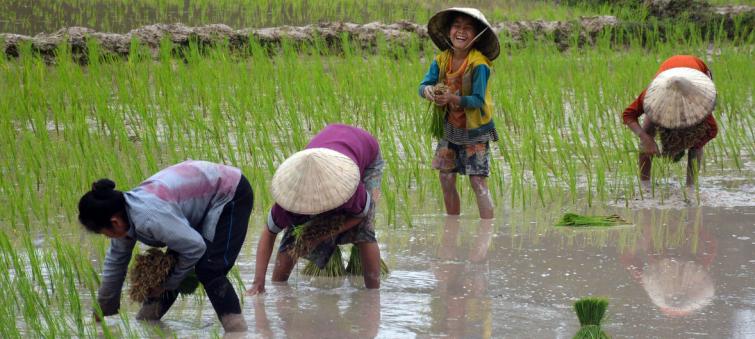
UN agency sounds alarm: Dwindling agrobiodiversity ‘severe threat’ to food security
New York/IBNS: To help ensure the most-consumed foods don’t disappear in the face of the climate crisis, farmers must cultivate crops able to resist environmental shocks and other stresses, the Food and Agriculture Organisation (FAO) highlighted in a new set of conservation guidelines published on Thursday.
The Voluntary Guidelines for the Conservation and Sustainable Use of Farmers Varieties, spotlights the need for food systems to be sustainable, but the lack of variety and increasing uniformity of crops may render them unsuitable for the changing conditions under which they grow.
“It is worrisome that humans rely on only three crops - maize, wheat and rice - for 51 per cent of all plant-based food”, Assistant Director-General of the Agriculture and Consumer Protection Department at FAO, Bukar Tijani, said in the publication’s foreword, highlighting that plants account for more than 80 per cent of the human diet.
FAO documented the decline in agrobiodiversity 20 years ago, noting the “genetic erosion” in crops reported by almost all countries, and highlighting that diversity within species is at least as important as diversity between species.
“The more diverse a crop production system is, including within and among species, the more unlikely that it would be affected uniformly by biotic and abiotic stresses”, Tijani added.
Farmer’s traditional varieties and so-called landraces (species that are locally-adapted to their environment) are more resilient than those with little genetic diversity, and yet, food producers are increasingly abandoning cultivation of traditionally-diverse varieties, for uniform types with higher yields.
The erosion of crop diversity “poses a particularly severe threat to global food security and nutrition, potentially undermining our efforts to attain the goal of eradication hunger and malnutrition by 2030.”
Systematic approach to farming
FAO’s new recommendations identify actions for sustainable crop growth: from documenting existing plant genetic resources for agriculture, to mapping their actual and potential uses; promoting their retention, and providing farmers and local communities with information and support in relation to crop conservation and sustainable use, bearing in mind different countries and contexts.
The importance of a systematic approach to these on-farm activities has been recognized by international organizations and instruments, the agency said in a press statement. The framework is the first of its kind to outline such an approach.
The food management tool was launched at a side event of the Eighth Session of the Governing Body of the International Treaty on Plant Genetic Resources for Food and Agriculture in Rome. It will act as a compliment to the agency’s guidelines on conservation and sustainable use of wild food plants, launched last year.
Support Our Journalism
We cannot do without you.. your contribution supports unbiased journalism
IBNS is not driven by any ism- not wokeism, not racism, not skewed secularism, not hyper right-wing or left liberal ideals, nor by any hardline religious beliefs or hyper nationalism. We want to serve you good old objective news, as they are. We do not judge or preach. We let people decide for themselves. We only try to present factual and well-sourced news.







